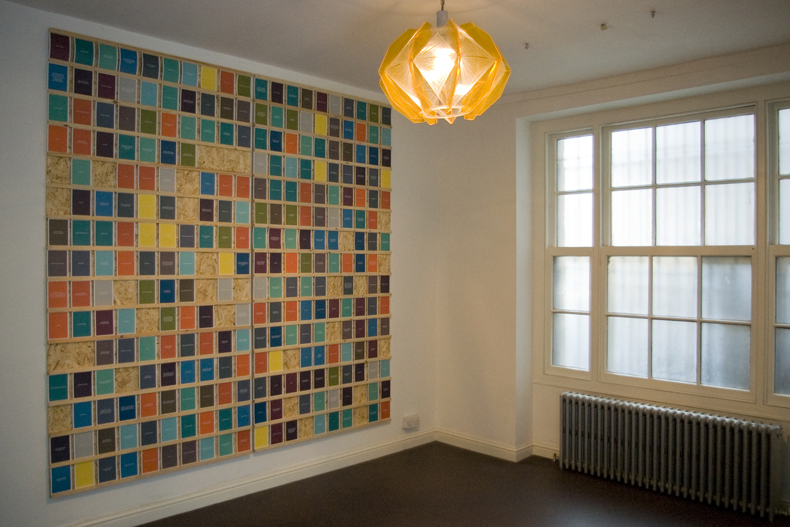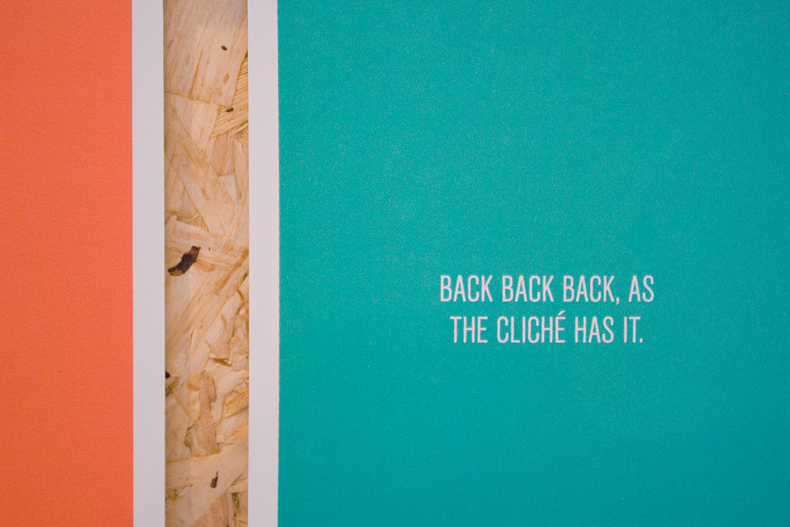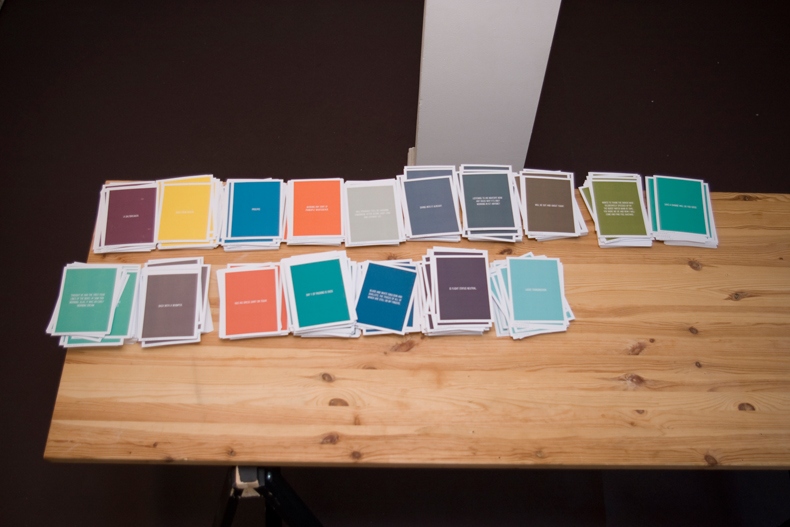Her House Gallery
26 Drysdale Street
London N1 6LS
Fri 30 September — Thu 6 October 2011
11am – 5pm every day (closed Sunday)

Since joining Facebook in 2007, Rishi Dastidar has catalogued each of his status updates in a succession of notebooks. containing over one thousand entries, spread across twenty-odd volumes. This compendium has been reinterpreted as a series of individual postcards, each a facsimile of an individual entry., punctuated by the ever- changing prompts of Facebook.
Visitors are actively encouraged to remove a postcard, leaving with a unique portrait of Rishi freed from the confines of social networking. Presenting them in such a public manner both reinforces the radical transparency inherent in the network, and also removes any suggestion of selectiveness or privacy, concepts that are claimed to be part of the idea of ‘friendship’ on Facebook.


Self Portrait postcards:
A conversation
MBWhen we first talked about this I remember you mentioning that you wanted to get something out of facebook, rather than just being a passive producer of content.
RDYes. It’s very easy to put stuff into it. But it’s much, much harder to get something ‘physical’ out of it.
MBWe’ve been talking about the triangular relationship between designer, producer and consumer, which facebook is moving away from to a certain extent — users produce content that is farmed by anonymous algorithms, then sold back to them in the form of targeted advertising.
RD And I think what we’re suggesting here helps to highlight the fact that, in facebook’s case, how that triangle has broken.
RDI mean, at one level, we’re showing how hard it is to physically manifest something back out of the platform.
MBYes. Facebook is very protective about the data they collect — if you read their developer policy you’re only allowed to cache users’ information in order to process it for your application, and although your all your status updates are stored indefinitely on their servers you have no way of searching or accessing them, short of downloading the data as a pseudo-wall, ten miles long.
RD Which no one will do, right?
MB Right. So putting your archive of updates to use, the notebooks of content, then giving them away, each as an individual object, rather than them ending up as anonymised, aggregated data, there’s something nice about that.
RDOK, that’s something interesting — a way of jacking the system, almost — reclaiming what’s yours, trying to put some grit in there. Born from the network, but then drawing attention to something outside of it.
MBSomething like that, yes. It reminded me of one of our earlier conversations, when you talked about forgetting something that had been said/done.
RDYes; how it shows that actually neither Facebook nor the creator has a perfect memory. Which actually means that our governing assumption about this new world should be about its ephemerality, and how, if any, using an old technology like paper, changes that assumption.